BRIGHT brings together all of the major research centres specialising in environmental humanities across the Nordic region. The participants in the network are:
DENMARK
AU Centre for Environmental Humanities, Aarhus University
 The Aarhus University Centre for Environmental Humanities (CEH) is concerned with re-engaging the environment in disciplines such as history, religion, literature and media, ethics, archaeology, anthropology, education, and artistic practice – all with a specific interest in reflecting on present concerns in a deep historical perspective. In the face of the profound environmental crises that loom large in politics and the popular imagination, exploring the cultural interfaces of different societies and their surroundings, synchronically and diachronically, has attained a new urgency. The AU CEH aims to bring together hitherto isolated environmental humanities scholars at Aarhus University, and to provide a major longer-term catalyst for the diverse research in this emerging field.
The Aarhus University Centre for Environmental Humanities (CEH) is concerned with re-engaging the environment in disciplines such as history, religion, literature and media, ethics, archaeology, anthropology, education, and artistic practice – all with a specific interest in reflecting on present concerns in a deep historical perspective. In the face of the profound environmental crises that loom large in politics and the popular imagination, exploring the cultural interfaces of different societies and their surroundings, synchronically and diachronically, has attained a new urgency. The AU CEH aims to bring together hitherto isolated environmental humanities scholars at Aarhus University, and to provide a major longer-term catalyst for the diverse research in this emerging field.
ESTONIA
KAJAK Estonian Center for Environmental History, Tallinn University
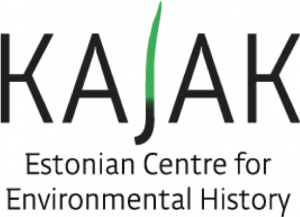 Estonian Centre for Environmental History (KAJAK) was founded at Tallinn University as recent as 2011 and has promoted environmental history in the Baltic region since then. It is an academic research network that brings together Estonian scholars from history, anthropology, semiotic, literary studies ec under the umbrella of environmental humanities, but also co-operates closely with scientists, museums, media, local NGOs, entrepreneurs and small business owners.
Estonian Centre for Environmental History (KAJAK) was founded at Tallinn University as recent as 2011 and has promoted environmental history in the Baltic region since then. It is an academic research network that brings together Estonian scholars from history, anthropology, semiotic, literary studies ec under the umbrella of environmental humanities, but also co-operates closely with scientists, museums, media, local NGOs, entrepreneurs and small business owners.
The main topics of KAJAK has been in recent times: environmental history, ecocritics, climate history, animal and plant history, food history, landscapes, coastal regions, history of fishs and the sea. Thanks to KAJAK, there are regular courses on environmental history and environmental humanities taught at Tallinn University. Every year there is also a number of seminars and conferences.
FINLAND
KOTA – Collaborative Naturecultures Network of the North, Oulu University and University of Lapland
KOTA – Collaborative Naturecultures Network of the North is an interdisciplinary initiative between the University of Oulu and University of Lapland. It brings together scientists, scholars, artists and doctoral students who share an interest in the intricate relationship between humans, societies and the environment. The network aims at bolstering dialogue across disciplinary and organisational boundaries and works in a close liaison with a new joint-university minor subject in environmental humanities and environmental social sciences. We hold the view that nature and culture are mutually constituted and share common histories and futures. Tackling the greatest challenges of our time thus requires humanistic and social scientific understanding of being-in-the-world and the co-existence between nature, humans and non-human others.
NORWAY
The Greenhouse, University of Stavanger
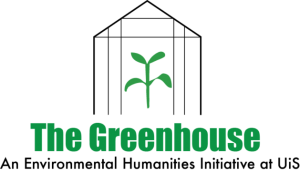 The Greenhouse is an Environmental Humanities program area at the University of Stavanger to support and grow a community of academics using history, literature, media, religion, philosophy, and art to understand how humans relate to environments. As an intellectual meeting place, we want to build connections between academics, museums, interest groups, and the public who are interested in environmental issues.
The Greenhouse is an Environmental Humanities program area at the University of Stavanger to support and grow a community of academics using history, literature, media, religion, philosophy, and art to understand how humans relate to environments. As an intellectual meeting place, we want to build connections between academics, museums, interest groups, and the public who are interested in environmental issues.
The group organises a monthly guest speaker series, weekly member lunches, and exchange visits by Greenhouse fellows. We have a Greenhouse library featuring a wide range of environmental humanities literature with a special emphasis on environmental history.
Oslo School of Environmental Humanities, University of Oslo
Oslo School of Environmental Humanities (Oslo Miljøhumaniora, OSEH) is an experimental interdisciplinary initiative based at the Faculty of Humanities, University of Oslo. Our aim is to promote humanities-led research and teaching on climate change and the natural environment, working across disciplinary boundaries to build dialogue and cooperation around critical environmental issues. Research at OSEH covers a span of disciplines in the humanities—including history, archaeology, philosophy, cultural studies, nordic literature, art history, media theory, comparative religion and area studies. Our projects address topics such as Norwegian oil, climate narratives in the media, energy transitions in Asia and the Middle East, and the history of concepts like deep time and the Anthropocene. OSEH will initially establish a new BA subject in Environmental Humanities, as well as a new interdisciplinary MA course aimed at students across the humanities, social sciences and natural sciences. In the longer term, we aim to create a new MA program in environmental humanities at the University.
SWEDEN
ECOHUM, Mid-Sweden University
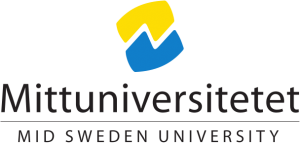 ECOHUM, the Eco-Humanities Hub, was launched by the Department of Humanities at Mid Sweden University in the spring of 2014. It represents a commitment to the development of studies in the emerging field of Environmental Humanities at Mid Sweden University. ECOHUM helps coordinate research projects and educational initiatives through which three subjects in Mid Sweden University’s Department of Humanities – English, History, Comparative Literature – engage Environmental Humanities study foci. Due to its ties to institutional and organizational partners, ECOHUM’s other active engagements extend from local and national to international cooperations. ECOHUM is a charter member institution in the European Environmental Humanities Alliance (EEHA).
ECOHUM, the Eco-Humanities Hub, was launched by the Department of Humanities at Mid Sweden University in the spring of 2014. It represents a commitment to the development of studies in the emerging field of Environmental Humanities at Mid Sweden University. ECOHUM helps coordinate research projects and educational initiatives through which three subjects in Mid Sweden University’s Department of Humanities – English, History, Comparative Literature – engage Environmental Humanities study foci. Due to its ties to institutional and organizational partners, ECOHUM’s other active engagements extend from local and national to international cooperations. ECOHUM is a charter member institution in the European Environmental Humanities Alliance (EEHA).
The interdisciplinary research environment is shaped by affiliated researchers at Mid Sweden University and visiting scholars who, sharing both their expertise in the field and their most current research, form an integral part of the scholarly exchange and cooperation that ECOHUM enables. Paving the way for increased cooperation between the humanities and other academic environments at Mid Sweden University that also engage environmental study topics is an additional ambition that ECOHUM will continue to pursue.
Environmental Humanities Network, Stockholm University
 The Stockholm University Environmental Humanities Network is a new constellation of scholars building on a shared interest in the environmental humanities. We focus on human-animal studies from a history of ideas perspective, eco poetics and water and nature/culture heritage from a deep time perspective. We launched a PhD level course in environmental humanities in 2018.
The Stockholm University Environmental Humanities Network is a new constellation of scholars building on a shared interest in the environmental humanities. We focus on human-animal studies from a history of ideas perspective, eco poetics and water and nature/culture heritage from a deep time perspective. We launched a PhD level course in environmental humanities in 2018.
Environmental Humanities Lab, KTH
 The Environmental Humanities Laboratory (KTH EHL), based at the Division of History of Science, Technology and Environment of KTH Royal Institute of Technology, is one of the leading hubs in the growing field of the environmental humanities worldwide. It was founded in 2011 thanks to the generous donation of a Swedish industrialist and the commitment of the KTH university. The EHL works on research, graduate training and outreach, covering almost all the main areas of the environmental humanities, including history, ecocriticism, political ecology, heritage studies, and science and technology studies). In the past five years, the EHL has attracted almost 4 million euros in external grants, developing projects on climate change, environmental migration, environmental literacy, toxicity and environmental justice, and audiovisual and media. The EHL has been involved in the first Pan-European PhD training programme in environmental humanities (ENHANCE) and it is part of the consortium publishing the Environmental Humanities Journal (Duke University Press).
The Environmental Humanities Laboratory (KTH EHL), based at the Division of History of Science, Technology and Environment of KTH Royal Institute of Technology, is one of the leading hubs in the growing field of the environmental humanities worldwide. It was founded in 2011 thanks to the generous donation of a Swedish industrialist and the commitment of the KTH university. The EHL works on research, graduate training and outreach, covering almost all the main areas of the environmental humanities, including history, ecocriticism, political ecology, heritage studies, and science and technology studies). In the past five years, the EHL has attracted almost 4 million euros in external grants, developing projects on climate change, environmental migration, environmental literacy, toxicity and environmental justice, and audiovisual and media. The EHL has been involved in the first Pan-European PhD training programme in environmental humanities (ENHANCE) and it is part of the consortium publishing the Environmental Humanities Journal (Duke University Press).
Ekogruppen/ Eco Group, University of Gothenburg
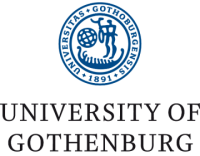 The Eco-group consists of teachers, researchers and students that are interested in, and working with, perspectives from the critical humanities on environment problems. The group arranges seminars, workshops and conferences where the group’s members as well as invited guests (as Helmuth Trischler/The Rachel Carson Center, Ursula Heise, Myra Hird) present papers on topics within a wide range such as environmental history, criticism, human-animal studies, biosemiotics, new materialism, and literary Darwinism. All seminars are open. We are cooperating with other environmental networks as The Seed Box (Linköping University), Ecocritical Forum (Mälardalen University), ENSCAN, museums in Gothenburg (Museum of World Culture and The Museum of Natural history),and researchers and groups at other departments and Faculties at The University of Gothenburg.
The Eco-group consists of teachers, researchers and students that are interested in, and working with, perspectives from the critical humanities on environment problems. The group arranges seminars, workshops and conferences where the group’s members as well as invited guests (as Helmuth Trischler/The Rachel Carson Center, Ursula Heise, Myra Hird) present papers on topics within a wide range such as environmental history, criticism, human-animal studies, biosemiotics, new materialism, and literary Darwinism. All seminars are open. We are cooperating with other environmental networks as The Seed Box (Linköping University), Ecocritical Forum (Mälardalen University), ENSCAN, museums in Gothenburg (Museum of World Culture and The Museum of Natural history),and researchers and groups at other departments and Faculties at The University of Gothenburg.
At the Department of Literature, History of Ideas, and Religion, it is possible to take a Bachelor- and Masters exam majoring in ether History of Ideas specializing on environmental history or Comparative literature with an ecocritical track. We give a variety of individual courses which topic is focused on environment and the humanities. The department also has Ph.d.-students specializing in environmental humanities.
SeedBox, Linköping University
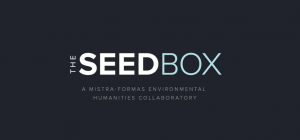 The Seed Box is an interdisciplinary and internationally-oriented pilot program in Environmental Humanities funded by Mistra (The Swedish Foundation for Strategic Environmental Research) and Formas (The Swedish Research Council for Environment, Agricultural Sciences, and Spatial Planning). The long-term goal of the program is to establish a research hub and humanities lab at Linköping University focused on environmental challenges and engaged in research, education, and artistic practices that bring together people from different fields and creates an interface between academia and other parts of society.
The Seed Box is an interdisciplinary and internationally-oriented pilot program in Environmental Humanities funded by Mistra (The Swedish Foundation for Strategic Environmental Research) and Formas (The Swedish Research Council for Environment, Agricultural Sciences, and Spatial Planning). The long-term goal of the program is to establish a research hub and humanities lab at Linköping University focused on environmental challenges and engaged in research, education, and artistic practices that bring together people from different fields and creates an interface between academia and other parts of society.


